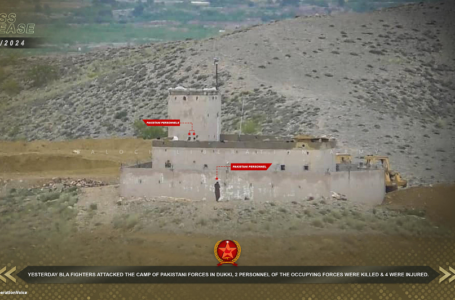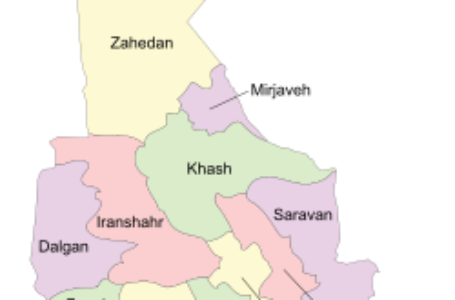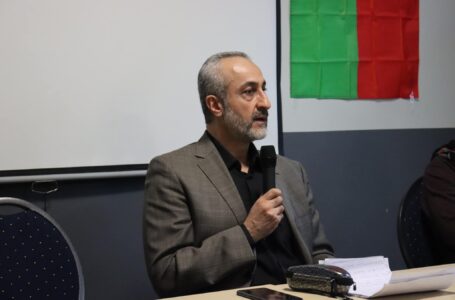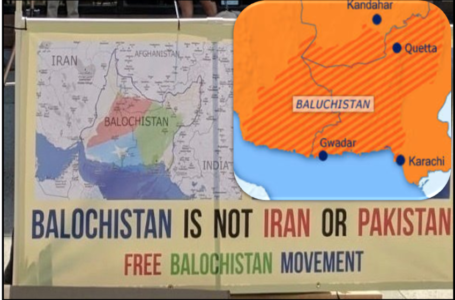Balochistan: Two Personnel of Pakistani Forces Killed in Dukki Attack
Belt and Road U-turn: China rethinks several Pakistani projects
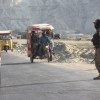
Blame it on political chaos, corruption or a deteriorating law and order situation in Pakistan. Whatever the cause, Chinese enthusiasm for the multi-billion dollar China-Pakistan Economic Corridor (CPEC) is waning and Beijing has taken several road, mass-transit and industrial zone projects off the table, either temporarily or permanently.
Two road projects that have been put on hold are in troubled Baluchistan province: a 210-km Dera Ismail Khan-Zhob artery and a 110-km Khuzdar-Basima route. The unfinished 136km Karakorum Highway (KKH) from Raikot to Thakot has similarly been abandoned, with people in Gilgit-Baltistan taking to the streets in protest.
It was revealed on the GEO News TV channel last week that China has also delayed funding for the Karachi Circular Railway and some industrial zones projects, and has suggested Pakistan take commercial loans from Chinese investment banks if it wants to see early completion of the projects.
Pakistani press reports have quoted a “senior government official” as stating Islamabad had hoped to get projects worth one trillion rupees (US$9.46 billion) finalized during a Joint Working Group (JWG) meeting with the Chinese on November 20 but that Chinese officials had, at that session, tabled “new guidelines” with regard to new funding mechanisms to be used beyond the earliest CPEC projects. They had, according to the Pakistani official, also suggested a reevaluation of CPEC, with only the highest-priority projects being pursued and those less likely to generate economic activity sidelined to avoid “overstretching” the CEPC portfolio.
Pakistan’s authorities have shrugged these reports off as a “fragment of imagination.” However, Asia Times has been able to verify that projects are being abandoned. On a visit to a free industrial zone project at Hattar, in Khyber Pakhtunkhwa’s Haripur district, for example, we learned that China had backed out of an earlier commitment to developing it under the CPEC umbrella.
“The Pakistani decision to let almost all the plots in the free zone surrounding Gwadar port to Saudi and Qatari investors without taking China into confidence created mistrust”
Muhammad Ishaq, a leading industrialist and former director on the Khyber Pakhtunkhwa Board of Investment & Trade (KPBOIT) said the government had in fact tricked investors and sold them plots of land by alluding to CPEC funding for power facilities on the site.
Cracks in the CPEC vision started to appear last month when Pakistani authorities announced the exclusion from the CPEC framework of the US$14-billion Diamer-Basha Dam in Kashmir. Speaking to the press, the chairman of Pakistan’s Water and Power Development Authority (WAPDA), Muzammil Hussain, said that “Chinese conditions for financing the Diamer-Bhasha Dam were not doable and against our interests.”
According to Ishaq, the growing wedge between the countries may be partly geo-political. “[An issue] which created mistrust… was the Pakistani decision to let almost all the plots in the free zone surrounding Gwadar port to Saudi and Qatari investors without taking China into confidence,” he said, adding that the government had canceled lets made to local entrepreneurs in order to accommodate Arab interest.
The security issue in volatile Baluchistan is likely a more pressing concern for Chinese officials, however. Separatist forces and religious zealots have made Baluchistan a valley of death. In only the last two months, 64 people – including senior police officers and laborers working on CPEC projects – have been mercilessly killed in various incidents which the authorities acknowledge were carried out by parties bent on sabotaging CPEC.
Source: Asia Times

